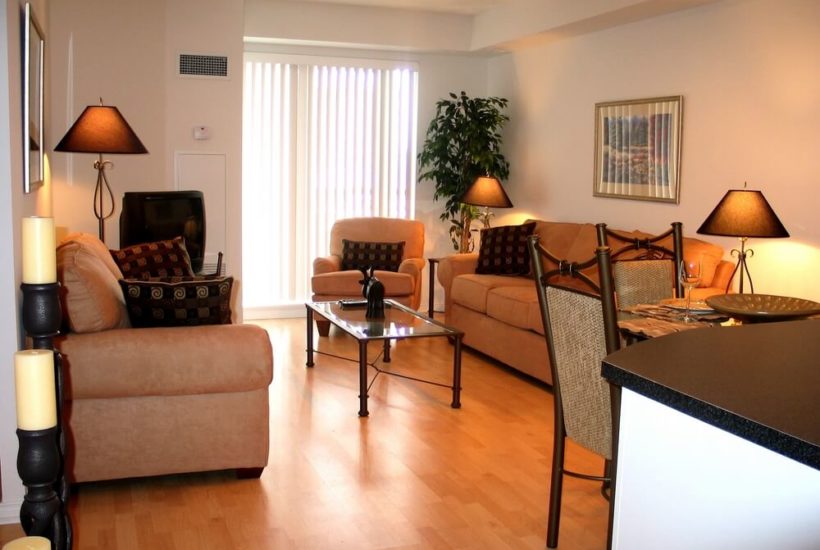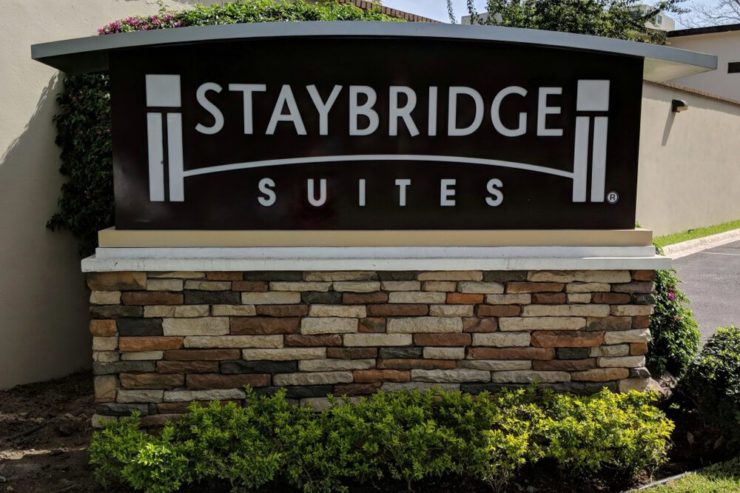Business
Should you ditch your vacation rental for an extended-stay hotel?
Is an extended-stay hotel a better option than vacation rentals for travelers?

When Kathryn Valdes travels somewhere for more than a week, she skips a hotel and rents an apartment or vacation rental instead.
“An apartment has a kitchen and a sitting area to gather,” says Valdes, a retired program manager from Mahomet, Illinois. “A hotel has no private area to relax with others.”
Another must-have amenity: a kitchen. Valdes loves to visit farmers markets while she’s on vacation and prepare her own meals. Most hotel rooms don’t have kitchens.
With the summer travel season just ahead, there’s good news for travelers like Valdes. Hotels, in an effort to keep long-term guests who want a more home-like experience, are adding amenities that may make Valdes and others rethink their plans to stay in an apartment.
There have always been extended-stay hotels, of course. But the segment is expanding. It grew to 123 million room nights in 2017 from 107 million room nights in 2015, according to research by the Highland Group, a hotel consulting firm. That’s about three times the pace of the overall hotel industry’s growth. Last year, Highland reported that extended-stay hotel occupancy reached one of its highest second-quarter levels in 17 years.
“Extended-stay hotels are the fastest growing industry segment in the United States,” says Mark Skinner, a partner at Highland Group.
How are extended-stay properties trying to lure guests like Valdes back? By giving them more. Skinner defines an extended-stay hotel as a property that’s fully equipped with a kitchenette in each guestroom and that accepts reservations but doesn’t require a lease. But some hotels are adding bigger kitchens and living areas. They’re also marketing themselves to people who may have left them for vacation rentals, but are fatigued by the inconsistencies of an independently owned rental.
Take Element Hotels, one of Marriott’s extended-stay brands. This spring, it’s opening a property in Boulder, Colorado, debuting a Studio Commons concept featuring multiple rooms built around a common living room space — perfect for groups traveling for business or leisure who want to get together in private.
“It’s a place where families can be together or where you can have a business meeting,” says Toni Stoeckl, a vice president at Marriott.
Rick Colling, who heads the Homewood Suites by Hilton brand, says there’s been a “gradual evolution” of the extended-stay hotel.
“This is not only because of value but also due to the locations where we are developing our hotels,” he adds.
InterContinental Hotels Group, which owns two extended-stay brands, is adding rooms at a fevered pitch. To date, Staybridge Suites has more than 29,000 rooms in the system, with another 20,100 in the pipeline.
Extended-stay hotels have always seen high demand from business travelers. But with more of those guests mixing leisure activities with their business trips and bringing their families along, Hilton is adding extended-stay properties in neighborhoods just outside an urban core that still feature many amenities of a city center in places like Orlando, Florida, Chicago and Las Vegas.
InterContinental Hotels Group, which owns two extended-stay brands, is also adding rooms at a fevered pitch. To date, Staybridge Suites has more than 29,000 rooms in the system, with another 20,100 in the pipeline. Candlewood Suites has more than 36,000 rooms open, with more than 9,000 under construction.

InterContinental Hotels Group’s Staybridge Suites has over 29,000 rooms. (Photo by Luke.Travel via Shutterstock)
“One of the biggest draws of both brands are the fully equipped kitchens with full-size refrigerators for those travelers who prefer an alternative to dining out while they’re away from home,” says Raul Ortiz, a vice president of global marketing for Staybridge and Candlewood brands. “We also offer free laundry facilities at all of our extended-stay properties, which is especially beneficial for long-stay guests and families traveling with little ones.”
Even long-term corporate rentals and apartments are getting into the act and trying to give travelers like Valdes a reason to stay with them. AKA, which operates long-term luxury rentals in New York, Los Angeles, Philadelphia, Washington, D.C., and London, is expanding its brand to meet “growing demand” from leisure travelers, according to Larry Korman, AKA’s president.
“Extended-stay properties cater to the convenience, and rising trend, of living a more flexible lifestyle,” he adds.
Here’s where it’s all headed: Some hotels, like the Kimpton RiverPlace Hotel in Portland, Oregon, now offer both regular rooms and extended-stay rooms, and market to leisure travelers. Its Marina View Condo Suites are billed as apartment living with all the hotel perks.
“Condo guests can take advantage of in-room dining, daily coffee and tea service and social hour, free bike rentals, the fitness center, and our concierge, to name just a few,” says Whitney Brown, the hotel’s general manager.
In other words, when you book your next hotel stay, you might not even need to ask if you should try an extended-stay property. Because you might already be staying in one.
What you need to know about an extended-stay hotel
Amenities
Most extended-stay hotels have kitchenettes, but they may not have an oven, in-room laundry facilities or separate living room area. Check the property descriptions carefully and be sure to match them to your needs.
Services
While some extended-stay hotels offer room service, many clean their rooms only weekly. So if you’re staying in a property for a week, your room may not get cleaning service or fresh towels.
Policies
Extended-stay properties generally don’t charge mandatory “resort” fees. But pay attention to their cancellation policies, which can vary. Staybridge, like other InterContinental properties, requires 24 hours; Extended Stay America allows you to cancel until 6 p.m. on the day of arrival.
(Featured image by Rohit Seth via Shutterstock)
—
DISCLAIMER: This article expresses my own ideas and opinions. Any information I have shared are from sources that I believe to be reliable and accurate. I did not receive any financial compensation for writing this post, nor do I own any shares in any company I’ve mentioned. I encourage any reader to do their own diligent research first before making any investment decisions.

-

 Africa6 days ago
Africa6 days agoMorocco’s Wheat Dependency Persists Despite Improved Harvest
-

 Crypto2 weeks ago
Crypto2 weeks agoBrazil’s Crypto Boom Threatened by Surprise Tax Proposal
-

 Biotech15 hours ago
Biotech15 hours agoEcnoglutide Shows Promise as Next-Generation Obesity Treatment
-

 Markets1 week ago
Markets1 week agoCocoa Prices Drop Amid Speculative Selling and West African Supply Concerns
























